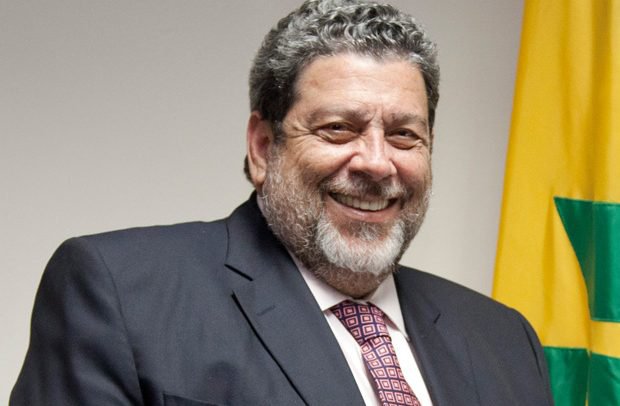Introduction
This week, we feature the statement made by Prime Minister, Dr. The Hon Ralph E. Gonsalves at the meeting of the United Nations Security Council held on Monday, April 19, 2021. The meeting which was organised by the current President of the Council, Vietnam, was convened to discuss the role of regional and sub-regional organisations in enhancing confidence building and dialogue in conflict prevention and resolution. Below is the statement in its entirety.
Thank you Mr. President,
St. Vincent and the Grenadines thanks the briefers for their insightful comments; and we commend Vietnam for its leadership in initiating this debate on the enhancing of cooperation between the United Nations and regional/sub-regional organisations. This subject is of immediate relevance to my country in the context of a massive natural disaster against the backdrop of the many-sided challenges of the COVID-19 pandemic and the predicted active Atlantic hurricane season that begins in six weeks’ time. Please permit me a little latitude for a minute or two.
Mr. President, for eleven days now St. Vincent and the Grenadines has been in the throes of a series of explosive volcanic eruptions on the island of St. Vincent. As a consequence, nearly one-fifth of the island’s population has had to be evacuated to safer areas. A monumental challenge of humanitarian relief, inclusive of security considerations, recovery and reconstruction face us. Without effective cooperation between our country, the United Nations, and our regional/sub-regional organisations, our life and living would be wholly unbearable. Without an enhancement of this cooperation, the relief effort would be stymied and the prospects for our recovery and reconstruction would be dismal.
The United Nations and its agencies have been actively at work; and the personal leadership of my friend, Secretary-General, António Guterres, has been outstanding. The Caribbean Community (CARICOM), the Organisation of Eastern Caribbean States (OECS), the Regional Security System (RSS), the ALBA, the Association of Caribbean States, and their allied regional agencies have been at the forefront with their magnificent efforts. Still, much more is required to be done. Across our land the faces of men and women are strained and anxious; they are hurting badly. The global community is being summoned to action to our aid in the name of humanity and in accordance with the UN Charter; and it cannot allow itself to make haste slowly.
Tomorrow, under the auspices of the UN, a Global Appeal Fund for St. Vincent and the Grenadines will be launched. Be generous in your solidarity!
Turning now, more specifically to conflict-affected settings, it has become a ringing truth that regional institutions in concert with the United Nations, are often best-suited to facilitate the pacific settlement of disputes through:
the United Nations, are often best-suited to facilitate the pacific settlement of disputes through:
- mediation,
- confidence-building,
- observation and verification missions, and,
- other measures that promote stability, build trust, and create an environment conducive to development.
Indeed, any dispute that is likely to endanger international peace and security should first be addressed through these peaceful means, with the assistance and participation of relevant regional arrangements, as enshrined in the UN Charter.
Mr. President, let us restate foundational principles:
Security is, at its very core, a collective endeavour that can only be achieved as parties build trust and stable relationships. In this regard, lasting peace can never be imposed. It must emerge organically from among all relevant stakeholders.
Saint Vincent and the Grenadines believes that regional arrangements, such as ASEAN, the African Union (AU), and our very own Caribbean Community (CARICOM) are often better placed to support peace processes than those entities that are far removed from the unique and specific histories, cultures, politics and material circumstances of development.
The Security Council is required always to lend its full support and encouragement to all regional mechanisms and refrain from any actions that may circumvent or undermine the legitimate role of regional bodies. We welcome the ongoing efforts of the Secretary-General, and his Special Envoys and Special Representatives, to enhance the cooperation between the United Nations and various regional and sub-regional organisations. The convening platform of the Peace-building Commission (PBC) also proves useful in providing a coherent, multi-stakeholder strategy to assist conflict-affected countries to overcome their challenges. Greater efforts must be made to enhance further this comprehensive “whole-of-system” approach; and regional arrangements must be included at every step of the process.
Mr. President,
Conflict prevention and resolution activities are most effective when they are complemented by targeted peace-building and development initiatives that address the root causes of insecurity, improve lives and livelihoods, and bolster national ownership over peace processes. The norms and principles of sovereign equality, territorial integrity, and political independence must always serve as a guidepost for conflict prevention and resolution. In all situations, the mandates of regional organisations ought never to be subverted by hegemonic self-interests or eroded through unilateral action; but ought always to serve as platforms to enhance sovereignty and promote solidarity and cooperation. Still, none of these vital precepts ought ever to blind us to egregious abuse or violation of elemental human rights and the consequential need for appropriate collective action through the Security Council.
I close respectfully with a reminder: Please help St. Vincent and the Grenadines in its midnight hour of need.
Thank You.

